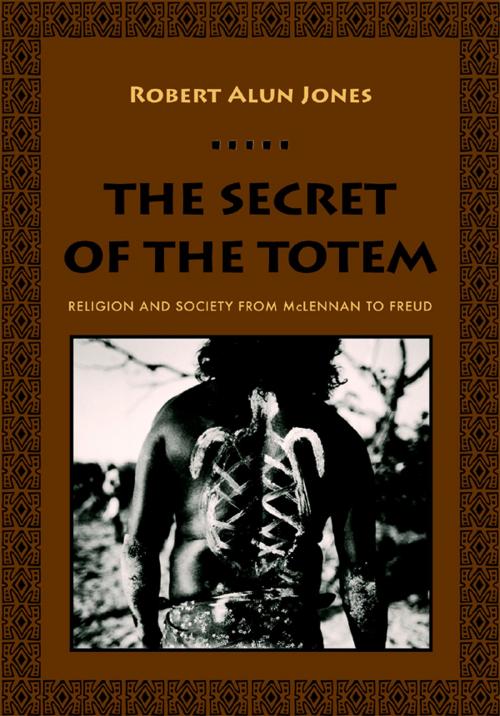The Secret of the Totem
Religion and Society from McLennan to Freud
Nonfiction, Social & Cultural Studies, Social Science, Anthropology, Health & Well Being, Psychology| Author: | Robert Alun Jones | ISBN: | 9780231508773 |
| Publisher: | Columbia University Press | Publication: | September 7, 2005 |
| Imprint: | Columbia University Press | Language: | English |
| Author: | Robert Alun Jones |
| ISBN: | 9780231508773 |
| Publisher: | Columbia University Press |
| Publication: | September 7, 2005 |
| Imprint: | Columbia University Press |
| Language: | English |
Though it is now discredited, totemism once captured the imagination of Sigmund Freud, Émile Durkheim, James Frazer, and other prominent Victorian thinkers. In this lively intellectual history, Robert Alun Jones considers the construction of a theory and the divergent ways religious scholars, anthropologists, psychoanalysts, and cultural theorists drew on totemism to explore and define primitive and modern societies' religious, cultural, and sexual norms. Combining innovative readings of individual scholars' work and a rich portrait of Victorian intellectual life, Jones brilliantly traces the rise and fall of a powerful idea.
First used to describe the belief systems of Native American tribes, totemism ultimately encompassed a range of characteristics. Its features included belief in a guardian spirit that assumed the form of an a particular animal; a prohibition against marrying outside the clan combined with a powerful incest taboo; a sacrament in which members of the totemic clan slaughtered a representative of the totemic species; and the tracing of descent through the female rather than the male. These attributes struck a chord with the late Victorian mentality and its obsession with inappropriate sexual relations, evolutionary theory, and gender roles. Totemism represented a set of beliefs that, though utterly primitive and at a great evolutionary distance, reassured Victorians of their own more civilized values and practices.
Totemism's attraction to Victorian thinkers reflects the ways in which the social sciences construct their objects of study rather than discovering them. In discussing works such as Freud's Totem and Taboo or Frazer's The Golden Bough, Jones considers how theorists used the vocabulary of totemism to suit their intellectual interests and goals. Ultimately, anthropologists such as A. A. Goldenweiser, Franz Boas, and Claude Lévi-Strauss argued that totemism was more a reflection of the concerns of Victorian theorists than of the actual practices and beliefs of "primitive" societies, and by the late twentieth century totemism seemed to have disappeared altogether.
Though it is now discredited, totemism once captured the imagination of Sigmund Freud, Émile Durkheim, James Frazer, and other prominent Victorian thinkers. In this lively intellectual history, Robert Alun Jones considers the construction of a theory and the divergent ways religious scholars, anthropologists, psychoanalysts, and cultural theorists drew on totemism to explore and define primitive and modern societies' religious, cultural, and sexual norms. Combining innovative readings of individual scholars' work and a rich portrait of Victorian intellectual life, Jones brilliantly traces the rise and fall of a powerful idea.
First used to describe the belief systems of Native American tribes, totemism ultimately encompassed a range of characteristics. Its features included belief in a guardian spirit that assumed the form of an a particular animal; a prohibition against marrying outside the clan combined with a powerful incest taboo; a sacrament in which members of the totemic clan slaughtered a representative of the totemic species; and the tracing of descent through the female rather than the male. These attributes struck a chord with the late Victorian mentality and its obsession with inappropriate sexual relations, evolutionary theory, and gender roles. Totemism represented a set of beliefs that, though utterly primitive and at a great evolutionary distance, reassured Victorians of their own more civilized values and practices.
Totemism's attraction to Victorian thinkers reflects the ways in which the social sciences construct their objects of study rather than discovering them. In discussing works such as Freud's Totem and Taboo or Frazer's The Golden Bough, Jones considers how theorists used the vocabulary of totemism to suit their intellectual interests and goals. Ultimately, anthropologists such as A. A. Goldenweiser, Franz Boas, and Claude Lévi-Strauss argued that totemism was more a reflection of the concerns of Victorian theorists than of the actual practices and beliefs of "primitive" societies, and by the late twentieth century totemism seemed to have disappeared altogether.















